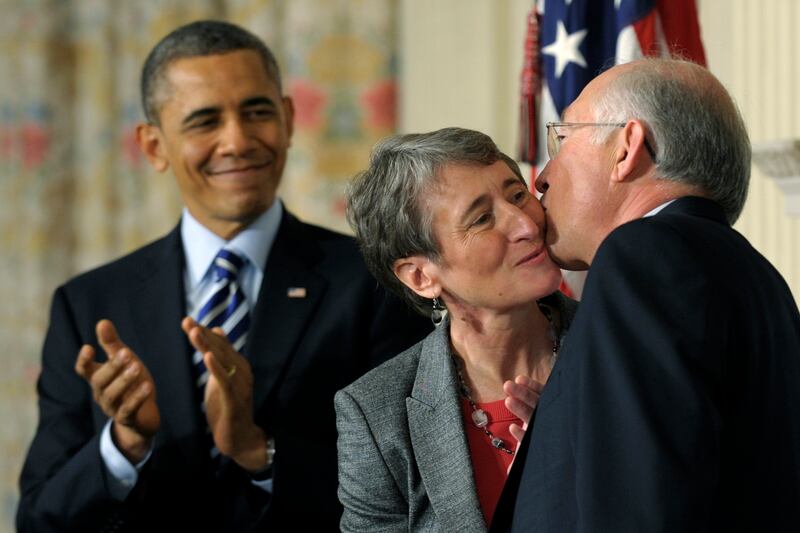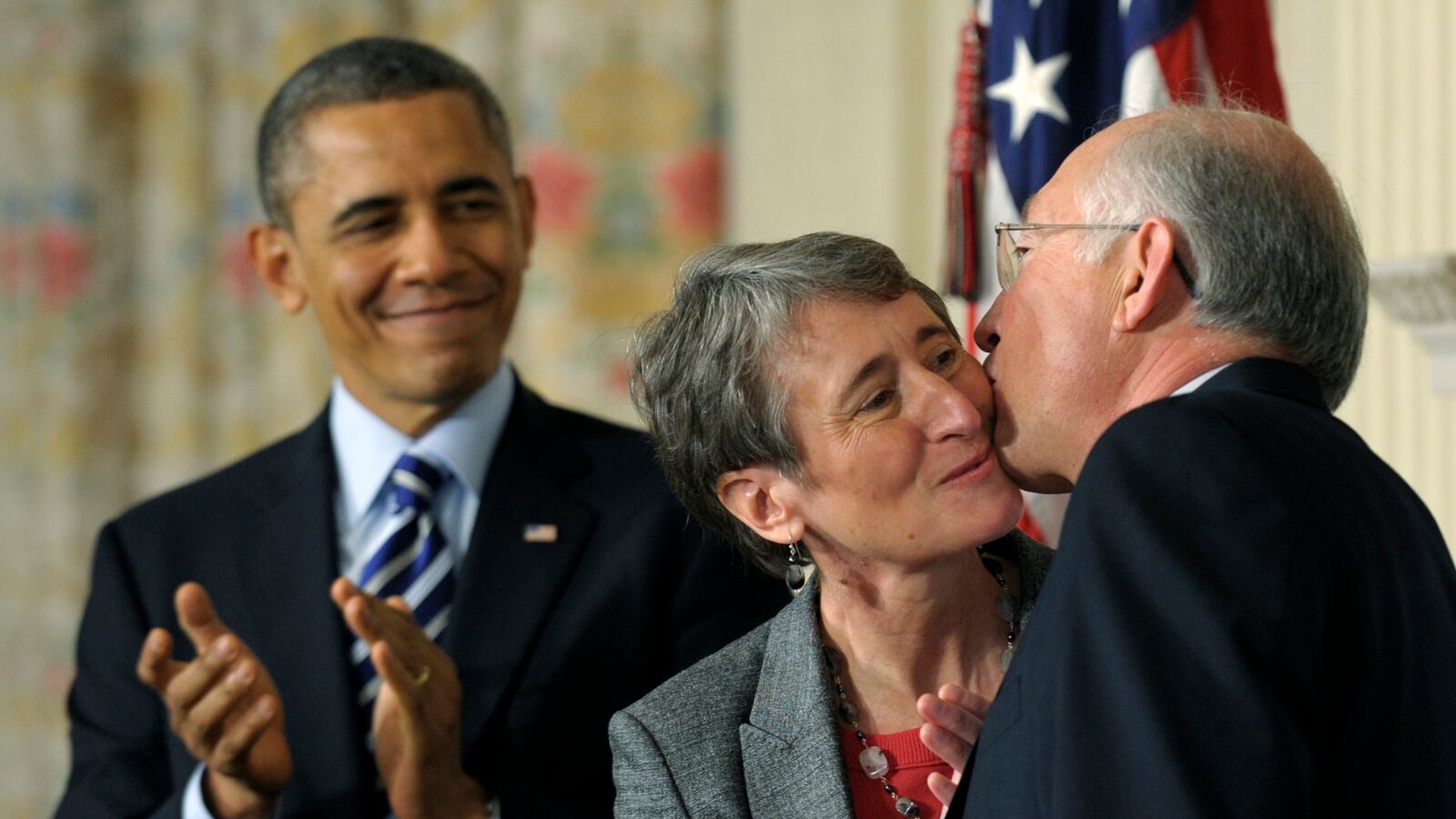For years, the “business community” has been complaining that President Obama has been reluctant to include chief executive officers in his inner circle. The Bush administration featured former CEOs of big companies at Defense (Donald Rumsfeld), Treasury (Paul O’Neill, John Snow, and Henry Paulson), Commerce (Carlos Gutierrez of Kellogg) and Energy (Samuel Bodman).

Now, more than four years into his presidency, Obama has finally appointed a chief executive officer of a national name-brand company with experience in the oil business to a cabinet post. Sally Jewell of the outdoor retailer REI has been nominated to be the next secretary of the interior.
But the folks at the Chamber of Commerce and the Business Roundtable, who might have been hoping for one of their own—a relentless advocate for lower taxes, reduced regulation, aggressive oil exploration, high executive pay, and hard-core Darwinian capitalism—to be vaulted into the inner sanctum might be disappointed. REI boasts annual sales of more than $1.8 billion and at the beginning of 2012 had 122 stores in 29 states and 11,000 employees. But it isn’t a typical company. And while Jewell is a veteran of Mobil Oil, she is much closer to a community organizer than a hard-charging boss. Oh, and she first climbed Mount Rainier at the age of 16.
REI is, in fact, a cooperative owned by its members—much like, say, the Park Slope Food Co-Op, or a credit union, or a kibbutz. It was started 75 years ago by a bunch of mountain-climbing enthusiasts in the Pacific Northwest and has grown steadily over the years. Americans have latched on to snowboarding, hiking, and the new trends of showing up to work in fleeces and adventure sandals. And REI has been there to serve them.
The chain’s retail footprint has spread from the northwest and earthy-crunchy precincts into unlikely new areas: Greensville, S.C.; Paramus, N.J.; Yonkers, N.Y.; even a store in the Puck Building in Manhattan’s SoHo neighborhood. (Because people need hiking gear to climb Cobble Hill and hike through Carroll Gardens?)
In 2011, REI reported revenues of $1.8 billion, up 8.4 percent from the year before, and healthy operating income of $116.2 million. It added 842,000 new members in 2011. But the profits didn’t go into the pockets of mutual funds, or of top bosses. Each year, members receive an “annual patronage refund” that is based on purchases. In 2011, REI distributed nearly $100 million to its 4.7 million active members. The company also has a philosophy of sharing profits with employees—at the end of 2011, it paid out $14.9 million in employee performance incentives and $13.2 million in profit-sharing and retirement payments.
REI is a touchy-feely place. It ranked eighth on Fortune’s 100 Best Companies to Work For in America for 15 consecutive years. The company notes: “REI is committed to promoting environmental stewardship and increasing access to outdoor recreation through volunteerism, gear donations and financial contributions.” Jewell closed her most recent letter to shareholders with a phrase that likely has never appeared in a Securities and Exchange Commission filing: “We wish you much joy in sharing the great outdoors with friends and loved ones or enjoying solitude in a beautiful setting, and look forward to serving you on that journey.”
Jewell hasn’t worked in politics, or in public policy. But as the CEO of REI, she has already played a significant role in caring for America’s public spaces. In her letter last year, Jewell noted that “through direct engagement in service projects on public lands, and grants that support organizations involved in connecting people to nature and stewardship, your co-op facilitated nearly three million hours of volunteer service in parks, recreation areas and natural spaces across the country.” About 3 percent of operating profits are spent on such stewardship activities.
Jewell is arguably well equipped to grapple with the challenges of the job. One of the big questions an interior secretary has to deal with is the desire by energy companies to produce oil and natural gas on federal land. She does have some experience working in the oil business: after graduating from the University of Washington with a degree in mechanical engineering, she worked for Mobil Oil for three years. Jewell segued into the banking industry and rose up the ranks at Washington Mutual. She joined REI’s board in 1996, became its chief operating officer in 2000, and was promoted to CEO in 2002. (The Seattle Times published a good profile of Jewell in 2002.)
But Jewell is far more interested in conservation than production. And environmentalists, who have been hard on Obama for his tentative efforts to deal with climate change, are likely to be pleased by her appointment. Business writer Marc Gunther described Jewell as an “active activist CEO,” recalling that she showed up to a dinner in Washington “toting a backpack and water bottle, talking up the importance of America’s national parks.” A lean and youthful mother of two adult children, she practices what she peddles. She enjoys hiking, mountain climbing, skiing, and boating. As she told Gunther: “There is nothing like a taste of nature to nurture the soul.”
We’ve come a long way from “Drill, baby, drill.”






